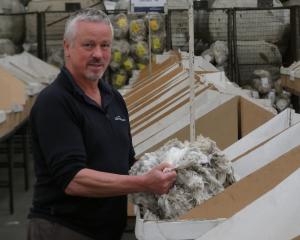
Clad in overalls and armed with a bucketful of contaminated carrots, council environmental officer for biosecurity Kirk Robertson released the virus RHDV1 K5 in the hills near Outram.
He had nine other sites to visit, and across the wider Otago region a team of six or seven people had been laying poisoned carrots in about 100 locations.
The virus could not be released everywhere on the same night but the council was aiming to do it in a short space of time.
Sunlight diluted the effectiveness of the virus, Mr Robertson said.
``It's got to be done while the sun goes down.''
In the morning he would collect the remaining carrots, to ensure no rabbits got a sub-lethal dose, which could lead to them developing immunity.
The virus, also known as rabbit haemorrhagic disease, was so potent rabbits could catch it by sniffing the carrots, he said.
According to information from the Ministry for Primary Industries, rabbits died from multiple organ failure between two to four days after contracting the virus.
In four to six weeks' time calicivirus was expected to become an epidemic, Mr Robertson said.
In the meantime rabbits needed to ``mingle'' for the virus to spread - so people should not shoot them, he said.
Organisers of the Great Easter Bunny Hunt had postponed the hunt until later in the year.
Farmers would still have to do some of their own rabbit control because, although the virus was powerful, it was ``not the answer'', Mr Robertson said.
The regional council said in a statement it encouraged land owners to make control plans for the winter months.
Taking dead rabbits from other farms was strongly discouraged, as it could also lead to a sub-lethal dose of the virus spreading, Mr Robertson said.
The virus has not been found to be dangerous to humans or animals, apart from rabbits.
Owners of rabbits are encouraged to ensure their pets' vaccinations are up-to-date.














